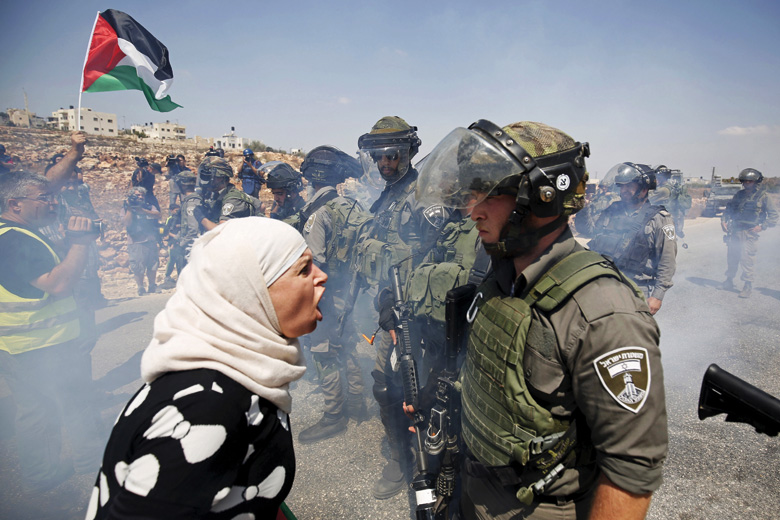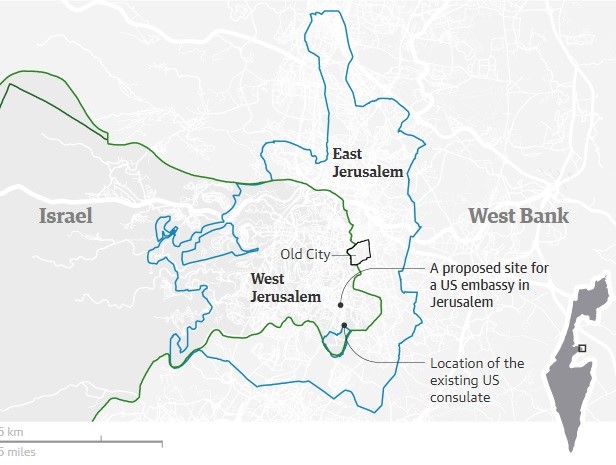Russia takes on larger role
December 25, 2017 | Expert Insights

Russia has volunteered to become an “honest mediator” in the ongoing peace talks between Palestine and Israel.
Historically, it has been the US that has played the mediator between the two regions locked in conflict.
Background
As the historic influence wielded by the US continues to wane in the Middle East, Russia has become an increasingly important power broker in the region. Especially in 2017, Russian President Vladimir Putin has made a concerted effort in bridging relations between Russia and Arab nations. In 2017, Saudi Arabia’s King Salman embarked on a historic four-day visit to Russia. The two nations signed a number of agreements worth billions of dollars. They signed more than 15 cooperation agreements. These agreements range from oil, military and space exploration and are worth billions of dollars. Russian Foreign Minister called the visit the moment the ties between the countries “reached a new qualitative level”.
Relations between Russia and Riyadh have also continued to improve. In 2007, Russian leader Vladimir Putin met King Abdullah in Riyadh. It was the first time a Russian leader had made an official visit to the Kingdom. However, the tenuously established ties disintegrated during the Syrian Civil War. Russia supports Syrian government led by President Bashar al-Assad and Saudi Arabia lends its supports to Syrian rebels. A number of Middle East nations like Egypt, Jordan, Israel and Turkey have in recent times renewed their ties with Russia.
Russia also has a military presence in the Syrian civil war. Russia’s military intervention in the Syrian Civil War began in 2015 upon the request of the Syrian government. Russia has targeted not only ISIS strongholds but also other groups waging a war against the Syrian government. The intervention initially began with air strikes engineered by the Russian Defence.
Analysis

On December 6th, 2017, US President Donald Trump pivoted from decades’ long US foreign policy and recognized Jerusalem as the capital of Israel. The international community has never recognized Israel's claim to the entire city. Tens of thousands in Middle East have continued to protest this development. The violence has resulted in the deaths and injuries of multiple Palestinians. Israel also conducted air raids on specific Palestinian targets.
A UN security council resolution calling for the withdrawal of Donald Trump’s recognition of Jerusalem as Israel’s capital has been backed by every council member except the US. However, the US used its veto on the resolution. Post the vote, Russia has once again volunteered to play a larger role in the Middle East. The nation has offered to “mediate” between Israel and the Palestinians. This role was historically played by the US.
Russia’s deputy UN ambassador Vladimir Safronkov said it was becoming more important to move “as quickly as possible towards direct Israeli-Palestinian negotiations.” He reiterated Russia’s proposal to hold a summit between the Palestinian and Israeli leaders. “We are ready to become an honest mediator here,” he said.
Meanwhile, a spokesman for the Palestinian president, Mahmoud Abbas, responded to the veto by saying it was “unacceptable and threatens the stability of the international community because it disrespects it”.
US ambassador to the UN, Nikki Haley said that the nations voting against the US had “insulted” the country. “It’s scandalous to say we are putting back peace efforts,” she added. “The fact that this veto is being done in defence of American sovereignty and in defence of America’s role in the Middle East peace process is not a source of embarrassment for us; it should be an embarrassment to the remainder of the security council.”
The Israeli prime minister, Benjamin Netanyahu, tweeted: “Thank you, Ambassador Haley. On Hanukkah, you spoke like a Maccabi. You lit a candle of truth. You dispel the darkness. One defeated the many. Truth defeated lies. Thank you, President Trump.”
Assessment
Our assessment is that America’s influence in world politics appears to be fading. Against this backdrop, nations like China and Russia would try to capitalize on a perceived decrease in US geo political influence to increase their own soft power in regions across the world. However both Russia and China faces fiscal challenges back home. Since July 2014, the ruble has lost almost 50% of its value. Real wages have been declining since 2014 and inflation has just stabilized around 6 percent, down from 13 percent a year back. In 2010, Putin promised to spend 19 trillion rubles (US$ 700 billion) on upgrading Russian military when oil was priced above US$ 85 a barrel. This value has more than halved to US$ 300 billion last year.








Comments